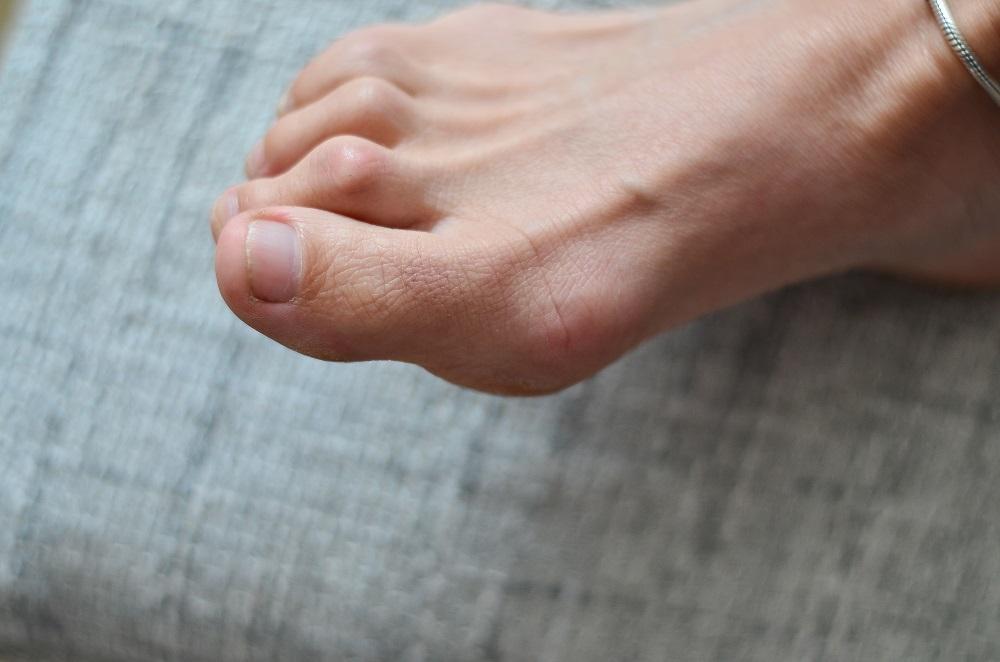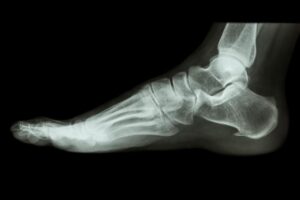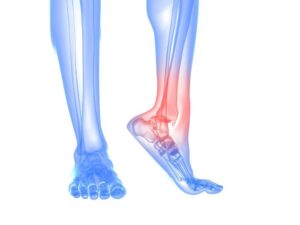Is Hammertoe Hereditary?

In the early stages, hammertoes don’t always appear serious. They can look odd and bend in strange ways, but they don’t always initially cause pain or mobility problems.
Without treatment, though, you’re at risk for developing potentially severe hammertoe complications. With those risks, it’s natural to wonder if hammertoes are hereditary.
Podiatrists Ryan Golub, DPM, and Zachary Flynn, DPM, AACFAS, from Arizona Foot Health in Phoenix, Arizona, explain if hammertoes are hereditary and why you should always treat your hammertoes.
Learning more about hammertoes
Initially, hammertoes begin as overly flexible toes. Your toes, usually the second, third, or fourth, bend unusually in a V shape.
The overly flexible hammertoes can cause swelling and pain and make it more difficult to move around. Without treatment, some hammertoes eventually become rigid, which means you can’t move the first toe joint at all.
Are hammertoes hereditary?
Hammertoes themselves are not hereditary, so you can’t inherit them directly from a parent. However, having certain foot types you inherit increases your risk.
You’re more likely to develop hammertoes if you have a longer second toe than a big toe, an unstable foot structure, or certain foot types, all of which you inherit. If you notice relatives with hammertoes, you can take preventative measures, such as wearing supportive shoes with a wide toe box, to reduce your risk.
Hammertoes can also develop for other different reasons. Some of the more common causes of hammertoes include:
- Having other foot conditions, including bunions or arthritis
- Poorly fitting shoes
- Too much pressure being put on your toes
If you’ve had a foot injury or other acute trauma to your toes, you’re also at increased risk of developing hammertoes.
Why treat hammertoes?
Hammertoes don’t always cause problems in the early stages, making it easy to put off treatment. Unfortunately, putting off treatment when the problem is mild can lead to late-stage rigid hammertoes.
After you develop rigid hammertoes, your toe joint won’t be able to move again, leading to significant pain and mobility problems. The only way to correct rigid hammertoes is by undergoing surgery.
Even if you don’t develop rigid hammertoes, flexible hammertoes can develop more problems over time without treatment. Potential complications include:
- Increased pain
- Trouble walking
- Swelling and redness
- Reduced range of motion
These symptoms reduce your quality of life and make it harder to get around.
Treatment options for hammertoes
The good news is, if your hammertoes haven’t progressed to being rigid yet, treatment measures are usually easy and conservative. Making simple changes to your footwear relieves symptoms and takes the pressure off your hammertoes.
Our podiatrists recommend shoes that have a wide toebox, are soft and flexible, and don’t have any heels. They also sometimes recommend wearing corn pads or medical-grade custom orthotics to further improve your comfort and support.
If you have problems with movement or pain, taking NSAIDs and other anti-inflammatory medication reduces any pain and swelling from hammertoes. Other treatments for these symptoms include corticosteroid injections and physical therapy.
If conservative treatments fail to alleviate your symptoms or you have rigid hammertoes, surgery can correct the problem. Our podiatrists specialize in minimally invasive surgery that uses tiny incisions and has a quicker recovery time.
You can usually leave the hospital the same day as hammertoes surgery and complete your recovery comfortably at home. Our podiatrists recommend the least invasive surgical solution that resolves your hammertoe problem.
With early treatment, managing hammertoes can be easy, fit into your lifestyle, and maintain your pain-free mobility. If you suspect you have or have been diagnosed with hammertoes, contact us for a consultation or appointment.
You Might Also Enjoy...
The Achilles Heel
Given Arizona’s climate, patients are able to remain active year round. It’s why we all chose to live here. But…
Alleviating Back Pain and Other Benefits of Custom Orthotics You Didn’t Know About
Would you ever imagine that custom foot orthotics could improve your quality of life? That’s what many people say after…
9 Helpful Tips to Prepare Your Home Before Bunion Surgery
When moderate interventions, such as wearing wider shoes or using pads in your shoes, fail to ease your bunion pain…
When Should You Go to the Doctor for an Ingrown Toenail?
In most cases, you can nurse an ingrown toenail at home with over-the-counter pain medication, topical antibiotic creams, and soaking…
6 Home Exercises to Keep Your Ankles Strong
Ankles that feel wobbly and weak are vulnerable to injury. If you play sports, run, jump, or just walk often,…
Is Surgery My Best Option For Treating Bunions?
You have a bunion and it isn’t pretty, but if your bunion is small enough, or doesn’t hurt, you may…






